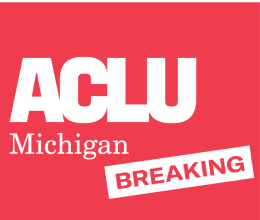
On March 24, 2003, the Department of Justice (DOJ) published a final rule without public comment that exempts the FBI's National Crime Information Center database from the Privacy Act. This means that the FBI no longer needs to ensure the accuracy and timeliness before loading incriminating information about a particular individual into the nation's most comprehensive law enforcement database.
Summary as published in Federal Register (68 FR 14140, 3/24/02): The Department of Justice (DOJ), Federal Bureau of Investigation (FBI), is exempting the FBI's National Crime Information Center (NCIC), Central Records System (CRS), and National Center for the Analysis of Violent Crime (NCAVC) systems of records from the Privacy Act. The exemption is necessary to avoid interference with law enforcement functions and responsibilities of the FBI.
What does this mean to you?
If you have a 35 year old arrest that was resolved it could still appear on the NCIC database as an open charge. [1] Similarly, false arrest information, which is not unknown now, will become even more prevalent. [2] The inaccurate information could result in the denial of a job, a passport or entry into Canada [3]; to name but a few examples.
Challenging inaccurate NCIC records is a daunting task. Since the records are presumed accurate you are required to prove a negative -- that the information is not true. Often old records are no longer available. [4] Many old court and police records were not microfilmed or transferred to computer database. And, even if you are fortunate enough to have your copy of a dismissal, this document would not be accepted -- only "certified" documents sent directly from the agency or court involved are accepted as rebuttal. Even after successfully proving the negative, it often takes six or more months for the corrected information to appear on the NCIC database.
What can you do? Join the ACLU now!
[1] The example is based upon a true case of a university professor who, as a graduate student, was arrested in 1968 for possession of less than 1 gram of marijuana. The case was dismissed. The NCIC record showed that he had been arrested for trafficking in narcotics. This inaccurate information almost caused the loss of a teaching position at a major east coast university.
[2] An ACLU volunteer at a neighborhood legal clinic reported that a woman (call her Alice) complained that her sister (call her Brenda) had been arrested years ago in California and gave her name as Alice. When Brenda told Alice about it, Alice called the jail and was told by the sheriff that it was all straightened out. Brenda was convicted and imprisoned. Now, years later after she moved to Washington, Alice discovered that Brenda's conviction is still recorded under Alice's name, even though California knows that Brenda used Alice's name. The inaccurate conviction data is being relied upon to Alice's detriment in various settings.
[3] NCIC records are shared with Canadian authorities.
[4] In the case cited in fn1, the Central Depository of Criminal Records for the State where the arrest occurred had no record of any arrest and the records of the court, which had dismissed the case, had been destroyed in a courthouse fire.